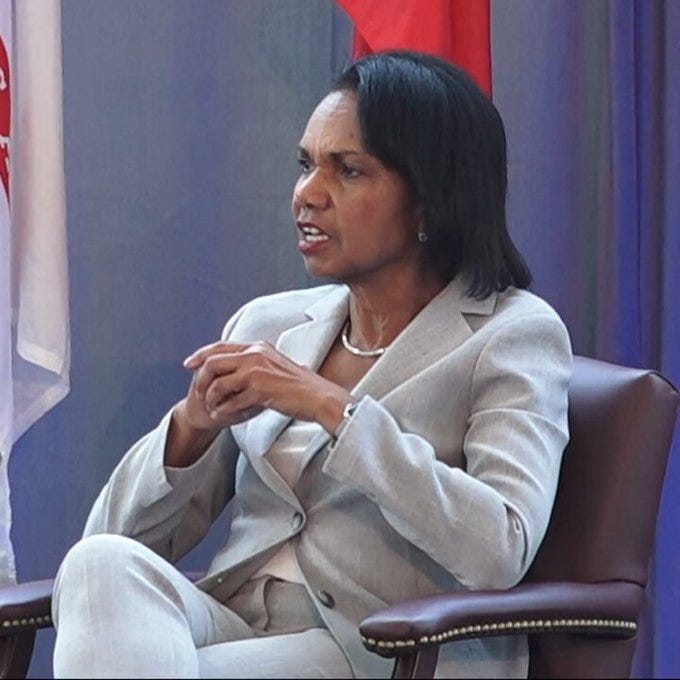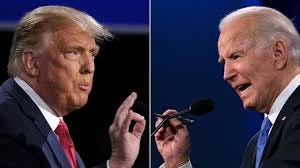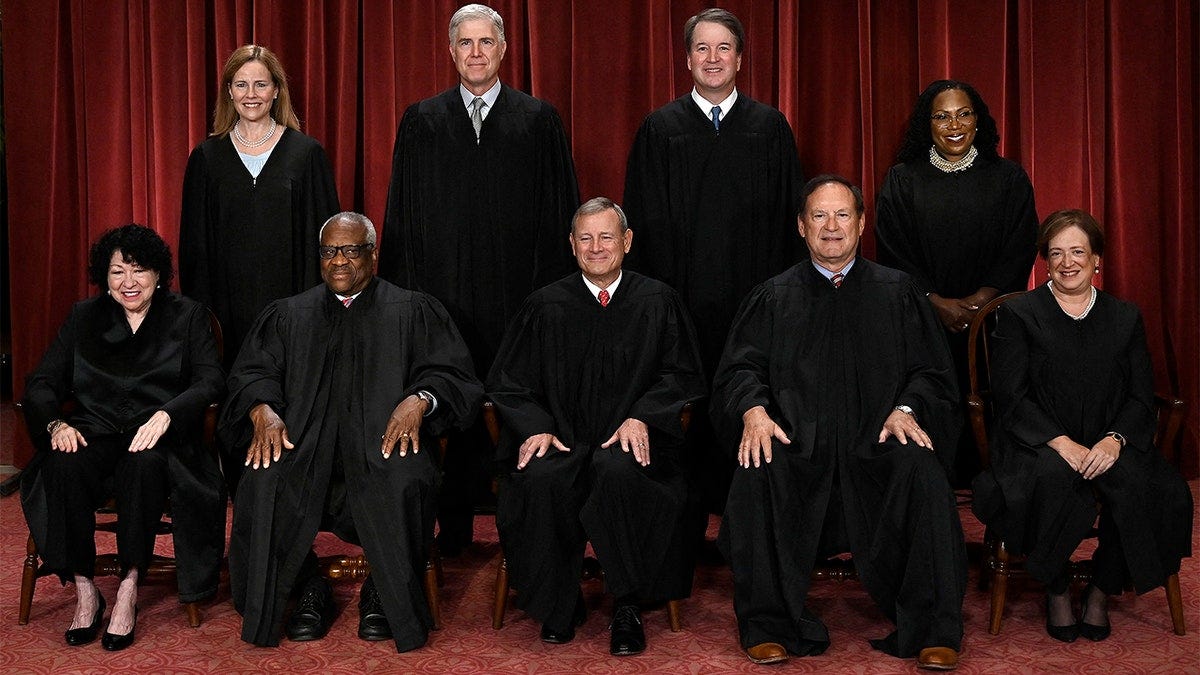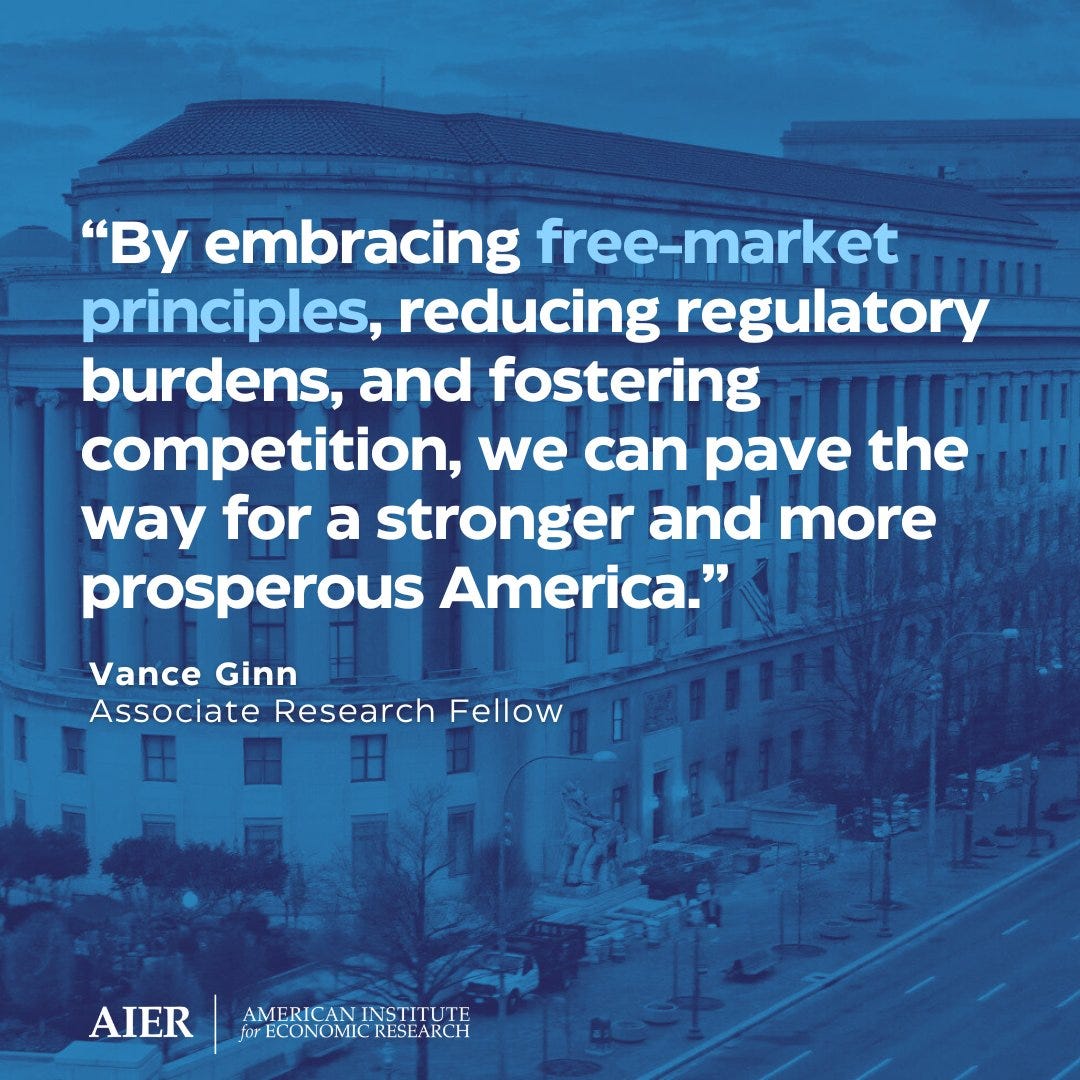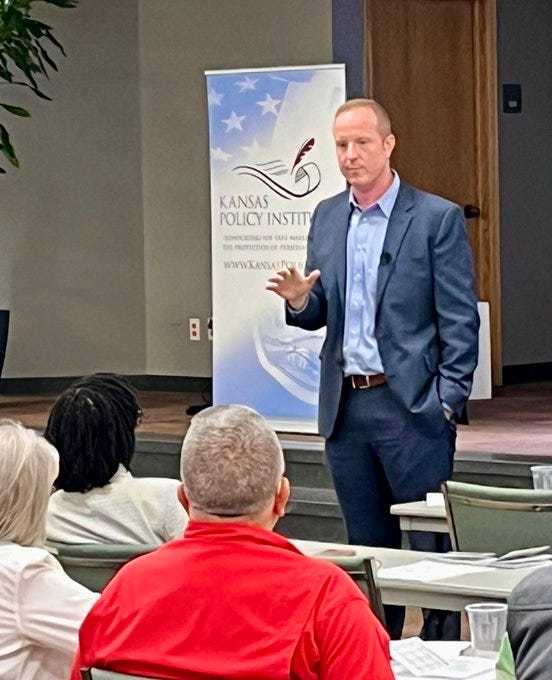264. Post Debate: 7 Things The Presidential Candidates Should Know | This Week's Economy Ep. 67
State-level jobs, Texas energy, school choice, presidential debate, and more.
Welcome to Episode 67 of "This Week's Economy”! Watch my podcast here or find it on Apple Podcast, Spotify, or your favorite podcast platform.
Today, we continue exploring key national and state economic issues, including information on state-level employment, Texas energy, school choice, presidential debate, etc.
1. BLS State Employment and Unemployment Report
Other states, local governments, and the federal government should take lessons from prosperous states with pro-growth policies of sustainable budgeting, tax and regulatory relief, and fewer barriers to work.
2. School Choice
Former Secretary of State Condoleezza Rice argued that school choice is necessary for helping minority and low-income students. And as The Hill reports, microschools have been gaining popularity since the pandemic as an alternative to traditional schools, especially for parents of neurodivergent students. And ProPublica reported on Greg Abbott’s efforts to pass school choice in Texas, as Texas is the largest GOP stronghold without school ESA legislation.
This should be the goal instead of populist measures to add the Ten Commandments to classrooms in government schools, like Lt. Gov. Dan Patrick recently suggested, whether that’s a good idea or not.
3. First Presidential Debate
As the presidential candidates prepare for the first debate on Thursday, the economy will likely be a key issue. Moody Analytics has predicted that a Trump win may fuel inflation if higher deficits are monetized by the Federal Reserve, a top concern for Americans. Immigration will also likely feature as Trump recently stated he would automatically give green cards to foreign nationals who graduate from a US college, a change from his previous anti-immigrant rhetoric.
Congress and the Fed are on the hook for America’s rising inflation. It’s up to Congress to spend less and the Federal Reserve to cut its balance sheet more quickly. While the next president should champion passing sustainable budgets, Congress holds the power of the purse and must control its overspending problem that has resulted in nearly $35 trillion in debt.
4. Texas Energy
Texas Tribune reports that the state’s electricity demand could nearly double in six years, predicts a grid operator. And with AI searches using 10-30x the power requirement as a traditional Google search, there are fears that a boom in computer data centers adds a new element of risk this summer.
Emphasizing market-driven solutions, including nuclear power, will enable Texas to meet today's and tomorrow's challenges, ensuring that the state remains a fantastic place to live, work, and raise a family.
5. Federal Debt Will Surge to $56 Trillion in 10 Years
Business Insider reports that the Federal Debt will reach $56 trillion in 10 years as spending continues to outpace revenues in a new CBO statement. Congress's continual overspending has resulted in more than $34 trillion in debt, hurting American households and businesses.
Overspending has a trickle-down effect and requires governments to raise taxes on citizens. It changes price signals from government action instead of allowing voluntary exchanges by people in the marketplace to allocate scarce resources best.
6. Supreme Court Ruling on Government Censuring Free Speech
The 6-3 decision in Murthy v. Missouri (also known as Missouri v. Biden) is unfortunate, and Congress should address the issue ASAP. The ruling determined that the plaintiffs lacked standing, allowing the federal government to continue pressuring social media companies to suppress speech. Justices Alito, Thomas, and Gorsuch dissented, recognizing the critical issues at stake.
While it is essential to acknowledge that private companies have the right to moderate content to ensure their profitability and competitiveness in today's competitive market, government interference in these processes poses a significant threat to the principles of free speech.
7. Could Trump Replace Income Taxes with Tariffs?
Replacing income taxes with tariffs is not feasible without substantial federal spending cuts, which Trump hasn't proposed. Let's consider the facts:
In 2023, Americans imported $3.9T in goods and services, with $3.1T in goods that would be newly taxed under tariffs. Americans paid the federal government $2.2T in personal income taxes in 2023.
A 71% tariff rate would be needed to replace income taxes with tariffs to collect the same revenue. This could lead to a significant decline in imports, economic disruptions, and potentially less tax revenue, especially considering the past impacts of Trump’s tariffs.
Tariffs are an inefficient consumption tax, distorting trade and shifting the tax burden indirectly, removing the direct connection between government spending and paying taxes to fund it, as a flat final sales tax does.
With federal spending at $6.7T last year, funding the government through tariffs alone, without spending cuts, is untenable for fiscal conservatives.
A more sustainable path involves significant spending cuts and a simpler tax system, such as a flat final sales tax or flat income tax, rather than relying on tariffs. Let's focus on sound policies that promote prosperity rather than flawed mercantilist approaches.
Media Hits and Events:
Article on Policy Uncertainty Drives Economic Volatility: My latest piece at the American Institute for Economic Research explores the impact of government intervention and policy uncertainty. I argue these factors hold us back from greater innovation and growth. Read the article.
I enjoyed my time this week in Kansas, speaking at candidate briefings with the great group at the Kansas Policy Institute. We had three informative briefings with legislative candidates and current legislators in Overland Park, Pittsburgh, and Wichita. Check out my speech here or under the paywall.
🎤 Interviews:
Interview on The Carol Roth Show in Louisiana about the economy, FDIC, and more.
Let People Prosper Show
Don't miss the latest Let People Prosper Show episode 102 with Dr. Veronique de Ruge at the link below.
263. Improving Immigration by Strengthening American Values with Dr. Veronique de Rugy | Let People Prosper Show Ep. 102 🎙️
Hello Friends! Join me for Episode 102 of the Let People Prosper Show to hear a deep discussion with the fantastic Dr. Veronique (Vero) de Rugy, the George Gibbs Chair in Political Economy and Senior Research Fellow at the Mercatus Center at George Mason University, who migrated to America from France decades ago.
This upcoming Monday’s Episode 103 of the Let People Prosper Show is with Stephanie Slade, a senior editor at Reason, the magazine of "free minds and free markets"; a fellow in liberal studies at the Acton Institute; and a media fellow at the Institute for Human Ecology at Catholic University of America. We discuss fusionism, liberalism versus illiberalism, and why we should celebrate liberty on Independence Day. Don’t miss it!
Quote of the Week
Bible Verse of the Week
Please like, subscribe, and share this episode. For more insights about me, my work, and ways to connect with me about researching, presenting, or assisting you, visit vanceginn.com.
Get a paid subscription today so you do not miss more information under the paywall.
Keep reading with a 7-day free trial
Subscribe to Let People Prosper to keep reading this post and get 7 days of free access to the full post archives.




